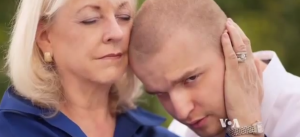A message from Madison House Autism Foundation’s President & Co-founder, JaLynn Prince.
 “Recently, in Rockville, MD, the police discovered twin 22-year-old males with autism locked in the basement of their home each night. The parents have been arrested, and the young men, reportedly nonverbal and prone to wandering, have been removed from the home. Likely a complex story, what we see at first glance may not be the whole story. Experience dictates further investigation before casting judgments. Let’s not judge these parents in the media; let them be judged in a court of law. No one should live in deplorable conditions especially the more vulnerable among us. However, we need to acknowledge that this situation, on many levels, is being played out across the United States.
“Recently, in Rockville, MD, the police discovered twin 22-year-old males with autism locked in the basement of their home each night. The parents have been arrested, and the young men, reportedly nonverbal and prone to wandering, have been removed from the home. Likely a complex story, what we see at first glance may not be the whole story. Experience dictates further investigation before casting judgments. Let’s not judge these parents in the media; let them be judged in a court of law. No one should live in deplorable conditions especially the more vulnerable among us. However, we need to acknowledge that this situation, on many levels, is being played out across the United States.
When most teenagers graduate from high school, a bright future awaits – college, careers, first homes, and families. Sadly, for many autistic adults, the joy of graduations gives way to a lack of purpose, despair, and isolation. Schooling that provided structure, learning, and skill development comes to an abrupt halt at graduation. Parents frequently leave jobs to become the primary caregivers. These young adults often have no places to go during the day, jobs may not be available, and a lack of social interaction can lead to depression and self-injurious behaviors, including aggressions.
National policies are making it necessary for parents of autistic adults to assume 24-hour-a-day roles as caregivers, entertainment sources, activities directors, medical coordinators, etc. These parents find few services or programs that exist to help them. A common plight is parental exhaustion because their autistic adult child may not sleep well, which is common in autism, and, if left unattended, may wander from the family home. This exhaustion is compounded by typical family stressors, other children – perhaps children on the autism spectrum, aging parents, isolation, and being on-call all day and night. Few resources exist to assist them. What do these parents do so they can get a night’s rest and also protect their children? Do they lock their children in their bedrooms? Do they put alarms on the outside doors? What if the alarms fail? Or someone turns the alarms off? Then what happens? Are there other solutions?
It is time for us to acknowledge the elephant in the room and address the need for comprehensive services not only for adults on the autism spectrum but for families caring for adult children on the spectrum.
On the practical side, there are compelling reasons to develop supports. Autism does not always have to mean aggressive or destructive behaviors, but it may mean being misunderstood. For example, if individuals with autism are not engaged in productive activity, they may find themselves encountering law enforcement on minor issues. Scenario: Young man on park bench drops litter; officer observes and confronts young man. Young man doesn’t respond; officer takes it as defiance. Young man wants to get away from stranger; officer confronts young man. Young man runs away; officer tackles young man. Officer is struck; young man is arrested. In jail, young man is teased by others, defends himself, is taken to court, and labeled “aggressive” and charged with assaulting an officer. We regularly hear stories like this. Now, instead of providing daily supports, society is paying for incarceration and court costs into the thousands of dollars each year. Lives are forever changed, and a destructive cycle has begun.
There are many types of autism. The autism spectrum encompasses highly capable and skilled individuals who make our lives better every day with contributions to technology, science, arts, and business to nonverbal individuals who need 24-hour-a-day supports. However, most adults with autism fall somewhere in the middle, and, with appropriate supports, can make meaningful contributions to the community. The problem remains – there are few supports for any of these individuals.
Whether looking at the lack of services and supports from an ethical or practical perspective, there is a need for a national conversation on how to address these issues. It is only a matter of time until we hear another preventable story like the one about the Rockville twins. For every story we hear, how many stories are playing out that we don’t hear about? It is time for us to acknowledge the elephant in the room and address the need for comprehensive services not only for adults on the autism spectrum but for families caring for adult children on the spectrum. This needs to be addressed both locally and nationally.”
About the Author




 JaLynn Prince Addresses Rockville Tragedy on “Montgomery Week in Review”
JaLynn Prince Addresses Rockville Tragedy on “Montgomery Week in Review”



My son,Olen is 19 and getting depressed because he feels his life is at a standstill now that he no longer goes to school.He is a loving,caring young man who wants a normal life,a job a girlfriend and eventually a wife and children we neeb advice and diretion about how to achieve his goals.Olen functions very well but cannot read or write well and sometimes hard to understand verbally but he is a wonderful young man with a great longing for a normal life.We appreciate any advice or help your org. can provide.Sincerely the Serzy family
We are starting a program centered around the Chinese martial art of Tai Chi Chuan, specifically Chen Family style
If you go to our website and click the Presentations page there are slide decks from some presentations we have done.
The central idea is we’d like to see people (typically adults) with autism be a little healthier – or maybe even a lot
healthier – have an inclusive group to socialize with and actually be able to earn a real college degree. We hasten
to point out both degrees (bachelor’s and master’s) are achievement-based: the student really has to do the sets
of movements. We also send out daily grades on every set done during the class so parents, teachers and doctors
can use quantitative methods to see if diet changes, alterations to medications, different bus route … are actually
helping. Weekly, videos are sent out to be professionally graded. We usually arrange to have a Grandmaster visit
once or twice a year with monthly visits by other martial arts experts. The Chen Family Grandmasters tour the world
relentlessly and are among the most formidable martial artists on the planet. It is a very cool moment for students and
parents when the class files out on to the stage in full formal silks with lights sparkling off the weapons. Sixteen
people with autism waving swords around – what could go wrong? The Chen Family is very formal about recognizing
achievements so when someone gets a passing grade on a set there’s a photo taken with the student and the
Grandmaster – what we call a mantelpiece moment.